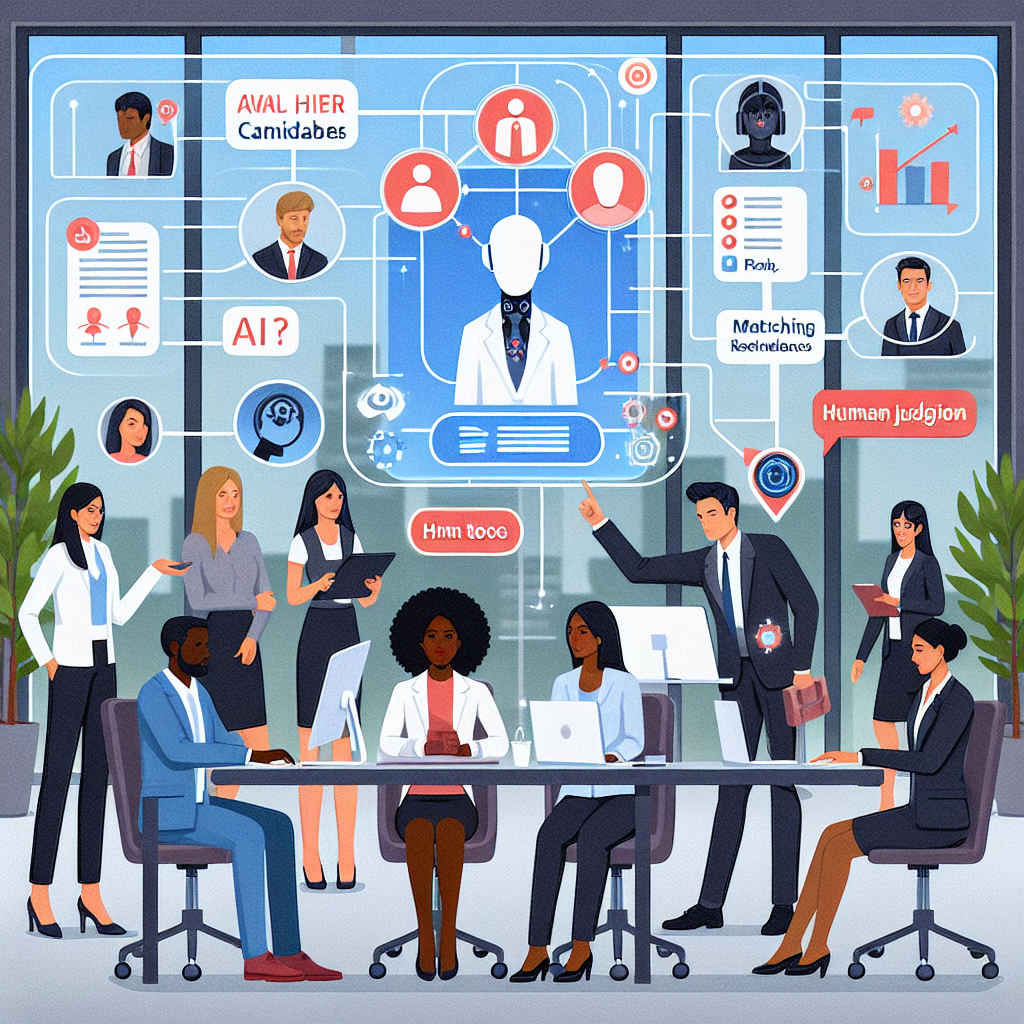Human Resource Management: How AI is Transforming HR Practices

In today's fast-paced and technology-driven world, the role of Artificial Intelligence (AI) is expanding beyond traditional realms. One area where AI is making significant strides is in human resource management. With its ability to automate processes, provide data-driven insights, and enhance decision-making, AI is revolutionizing HR practices like never before. Let's explore how AI is reshaping the HR landscape and delivering tangible benefits to organizations. Streamlining Recruitment: Finding the right talent is vital for any organization's success. AI-powered recruitment tools are simplifying and optimizing the hiring process. These tools can swiftly scan and analyze resumes, matching candidates' skills and qualifications with job requirements. By automating the initial screening, AI reduces bias and improves efficiency, enabling HR professionals to focus on more strategic tasks. Enhancing Employee Engagement: AI-powered chatbots and virtual assistants are transforming the way employees interact with HR. These intelligent systems can provide instant responses to employee queries, offer guidance on policies and procedures, and even provide personalized training recommendations. With AI, HR departments can provide round-the-clock support, improving employee satisfaction and engagement. Predictive Analytics for Retention: Identifying and retaining top talent is crucial for organizations. AI algorithms can analyze vast amounts of data, including employee feedback, performance reviews, and workplace sentiment, to identify patterns and predict potential attrition risks. By proactively identifying employees at risk of leaving, HR can take targeted retention measures, such as personalized development plans or improved work-life balance initiatives. Performance Management and Feedback: Traditional performance reviews are often subjective and infrequent. AI-driven performance management tools provide real-time feedback and continuous performance evaluation. By collecting and analyzing data on employee performance, these tools can offer objective insights, identify skill gaps, and recommend targeted training programs. This data-driven approach ensures fair and focused performance assessment. Bias Mitigation and Diversity: AI can help mitigate unconscious bias in HR processes such as resume screening and employee evaluations. By focusing on objective criteria and removing identifying information, AI systems ensure fair and unbiased decision-making. Additionally, AI algorithms can help track and improve diversity metrics, enabling organizations to create inclusive and equitable workplaces. Conclusion: As AI continues to evolve, the potential for its impact on human resource management is immense. By leveraging AI-powered tools and technologies, HR departments can streamline processes, enhance employee engagement, and make data-driven decisions. The combination of human expertise and AI capabilities promises a future where HR professionals can focus more on strategic initiatives, fostering a positive work environment, and driving organizational growth. Embracing AI in HR management is not just a trend but a necessity for organizations aiming to thrive in the digital era.